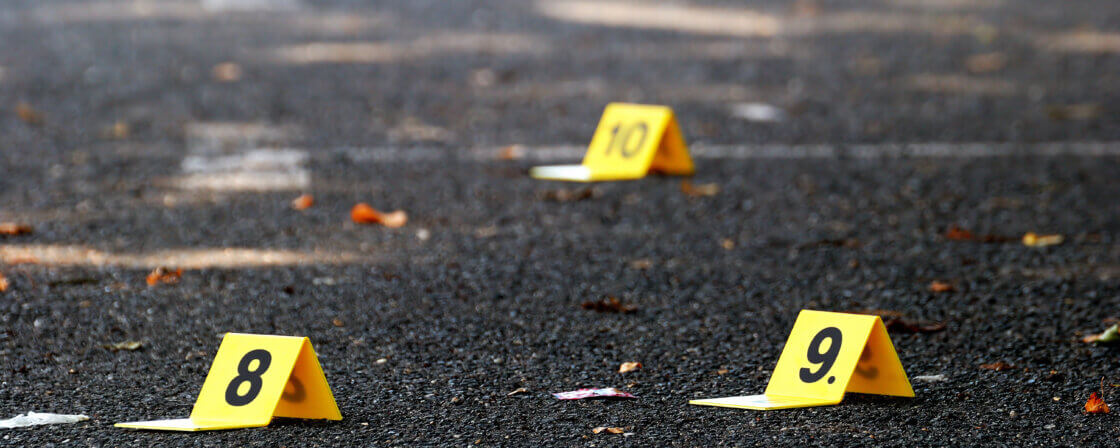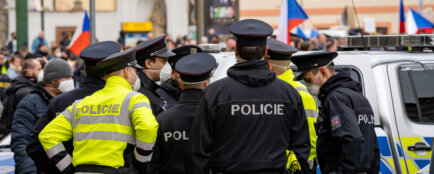Police of the Czech Republic
The Police of the Czech Republic plays a key role in criminal proceedings, especially in the initial stages – the so-called preliminary proceedings. Preliminary proceedings in criminal proceedings involve the investigation of criminal offences and the gathering of evidence before the case is brought to court. Throughout this process, the police cooperate with and are supervised by the public prosecutor.
The aim of this phase is to establish whether a crime has been committed, who is responsible and whether there is sufficient evidence to bring charges. The preparatory phase can be divided into two main phases:
The investigation phase
This part of the preparatory phase begins when the police receive information about a possible crime and a record of the initiation of criminal proceedings is made. The aim is to establish whether there are grounds for initiating a criminal prosecution. During the investigation:
- Gathering initial information: the police gather information about the alleged criminal activity from various sources and procure expert reports.
- Seizing evidence: Seizing primary evidence such as photographs, video footage, physical traces, etc.
- Conducting searches and seizing items: Searches and other searches to locate and seize items relevant to criminal proceedings.
If the investigation shows that there are reasonable suspicions of a crime, it moves to the second part of the preparatory phase – the investigation.
Are you solving a similar problem?
Are you considering filing a criminal complaint?
Have you been a victim or witness to a crime and are considering filing a criminal complaint? We can advise you on how to proceed. We will protect your rights quickly, efficiently and cost-effectively.
I want to help
- When you order, you know what you will get and how much it will cost.
- We handle everything online or in person at one of our 6 offices.
- We handle 8 out of 10 requests within 2 working days.
- We have specialists for every field of law.
Stages of the investigation
The investigation begins with the prosecutor’s decision to initiate a criminal prosecution. In this phase, evidence is collected and analysed that will later be used in court proceedings:
- Interviewing the accused: The accused is formally questioned, has the right to have a lawyer present and is informed of his/her rights.
- Interviews with witnesses and victims: The police interview witnesses and victims.
- Experts and expert reports: The police may call in experts to provide expert reports, for example in the field of ballistics, forensic analysis, psychological reports, etc.
- Crime Reconstruction: If necessary, a reconstruction of the crime may be carried out in order to better understand the course of events.
- Measures restricting personal liberty: Depending on the gravity of the offence and the circumstances of the case, the accused may be taken into custody, but only for the reasons laid down by law (e.g. to prevent him from escaping, influencing witnesses or continuing his criminal activities).
Once all the evidence has been collected and evaluated, the preparatory phase is completed and if the prosecutor concludes that there is sufficient evidence to prove the accused’s guilt, he or she will file an indictment with the court. This puts the role of the police to some extent in the background and brings the other two law enforcement authorities – the prosecutor and the court– to the fore.
Prosecutor
A public prosecutor is a lawyer who works for the public prosecutor’s office and represents the state in criminal proceedings. Prosecutors have a wide range of duties and responsibilities from the very beginning of a criminal case to the final verdict (unless the case is dismissed early).
Supervision, management and decision-making in the pre-trial phase
We have already outlined that the prosecutor cooperates with and supervises the work of the police in the pre-trial phase. In particular, he or she ensures that the police and other investigating authorities act in accordance with the law and respect the rights of all parties involved. The public prosecutor may impose specific tasks and instructions on the police and other authorities to carry out investigative acts. He or she also decides on the placement of the accused in custody. Based on the evidence and information gathered during the investigation, he or she then decides whether to initiate criminal proceedings.
In the case of a crime committed by members of the General Inspectorate of Security Forces, BIS, Military Intelligence, Military Police or the Office for Foreign Relations and Information, the prosecutor takes charge of the investigative function itself to ensure impartiality and fairness.
Representation of the state before the court
The public prosecutor is the opposing counsel for the accused (defendant) in court proceedings, representing the public interest during the main trial, presenting evidence and arguments in support of the prosecution’s case and asking questions of witnesses, the accused and other interested parties. He presents the prosecution case and the closing argument. He or she may appeal against (but possibly also in favour of) the accused, the interested party and the injured party. At the end of the main trial , he or she makes his or her closing submissions, including the proposed sentence for the accused.
Since 2012, the role of the prosecutor has been strengthened by an amendment to the Criminal Procedure Code, which allows the prosecutor to propose a plea bargain. It presupposes a promise by the accused to plead guilty to the offence and, in return, a proposal for a lighter sentence by the prosecutor. The agreement is prepared by the prosecutor and must be approved by the court. It speeds up and streamlines criminal proceedings and saves costs.
Court
The court is the key body that decides on the guilt and punishment of the accused and is composed of one or more impartial judges.
The role of the court in the main trial
The president of the court orders the main trial, within three weeks in the case of a district court at first instance or three months in the case of a regional court at first instance, after the prosecutor has filed the indictment.
Tip for article
Tip: The system of courts in the Czech Republic may seem relatively clear and straightforward, but we still encounter a number of questions about it. If you are also confused, read on to find out which court to turn to.
During the main trial, the court examines the evidence presented by the prosecution and the defence and ensures that the main trial is conducted fairly and that the rights of all parties are respected. Finally, it decides to terminate or continue the criminal proceedings, depending on the circumstances of the case , in one of the following ways:
- Remanding the case to the prosecutor: the court may remand the case to the prosecutor if it finds that the situation has changed during the pre-trial proceedings. This may happen if further evidence is discovered or if it is established that the accused has committed further offences.
- Suspended prosecution: the court may suspend the prosecution if the accused has confessed to the offence, has committed only an offence, has made good the damage or unjust enrichment and is willing to comply with certain conditions set by the court.
- Settlement: the court may approve a settlement between the accused and the victim if the accused and the victim agree on compensation or other settlement and the offence is a misdemeanour.
- Suspension of prosecution: The court may suspend the prosecution in certain situations, for example: if the accused is seriously ill and unable to attend the proceedings.
- Conviction: If the court finds the accused guilty, it decides on the type and amount of punishment. This may include imprisonment, a fine, suspended sentence, house arrest, etc.
- Acquittal: If the court finds the accused not guilty or there is insufficient evidence to prove guilt, it acquits the accused.
Tip for article
Hint: What is the range of sentences judges realistically use and can we predict what sentence will be imposed? Find out in our next article.
Summary
Criminal proceedings are a complex process in which the Police of the Czech Republic, the prosecutor’s office and the court play a key role. The police focus on the preliminary proceedings, where they carry out the examination and investigation of criminal offences. Prosecutors supervise the legality and correctness of the police procedure, decide on the initiation of criminal prosecution and represent the state in court proceedings. The courts then independently decide on the guilt and punishment of the accused on the basis of the evidence gathered and the course of the main trial. The entire process is structured to ensurefairness, impartiality and protection of the rights of all parties involved.




